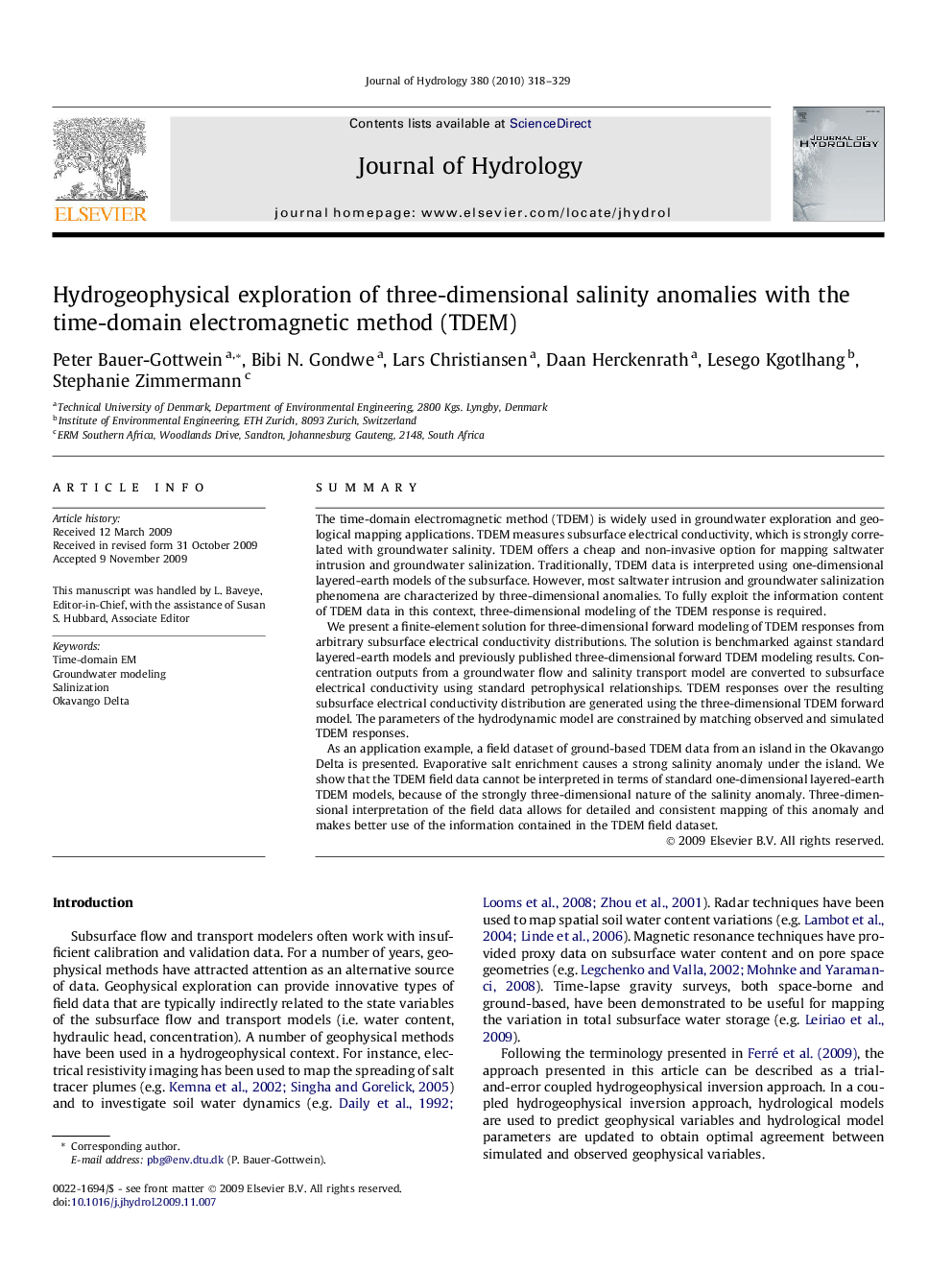| کد مقاله | کد نشریه | سال انتشار | مقاله انگلیسی | نسخه تمام متن |
|---|---|---|---|---|
| 4578369 | 1630064 | 2010 | 12 صفحه PDF | دانلود رایگان |

SummaryThe time-domain electromagnetic method (TDEM) is widely used in groundwater exploration and geological mapping applications. TDEM measures subsurface electrical conductivity, which is strongly correlated with groundwater salinity. TDEM offers a cheap and non-invasive option for mapping saltwater intrusion and groundwater salinization. Traditionally, TDEM data is interpreted using one-dimensional layered-earth models of the subsurface. However, most saltwater intrusion and groundwater salinization phenomena are characterized by three-dimensional anomalies. To fully exploit the information content of TDEM data in this context, three-dimensional modeling of the TDEM response is required.We present a finite-element solution for three-dimensional forward modeling of TDEM responses from arbitrary subsurface electrical conductivity distributions. The solution is benchmarked against standard layered-earth models and previously published three-dimensional forward TDEM modeling results. Concentration outputs from a groundwater flow and salinity transport model are converted to subsurface electrical conductivity using standard petrophysical relationships. TDEM responses over the resulting subsurface electrical conductivity distribution are generated using the three-dimensional TDEM forward model. The parameters of the hydrodynamic model are constrained by matching observed and simulated TDEM responses.As an application example, a field dataset of ground-based TDEM data from an island in the Okavango Delta is presented. Evaporative salt enrichment causes a strong salinity anomaly under the island. We show that the TDEM field data cannot be interpreted in terms of standard one-dimensional layered-earth TDEM models, because of the strongly three-dimensional nature of the salinity anomaly. Three-dimensional interpretation of the field data allows for detailed and consistent mapping of this anomaly and makes better use of the information contained in the TDEM field dataset.
Journal: Journal of Hydrology - Volume 380, Issues 3–4, 30 January 2010, Pages 318–329